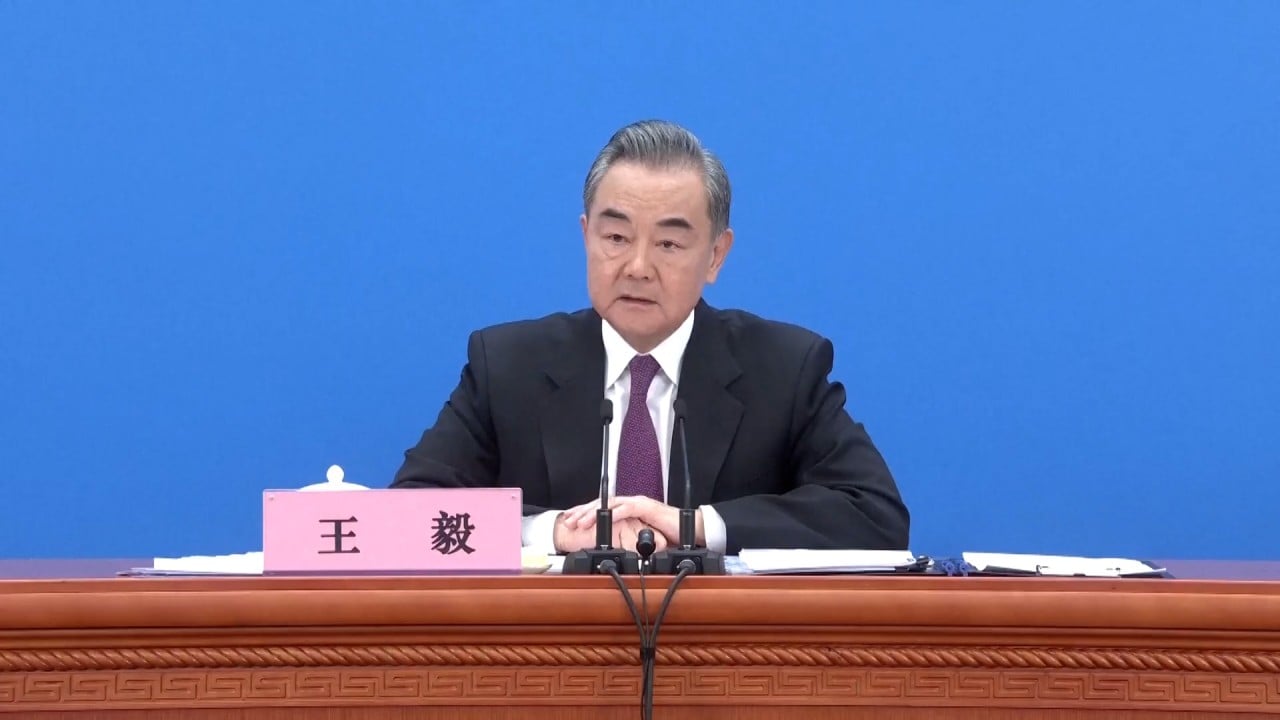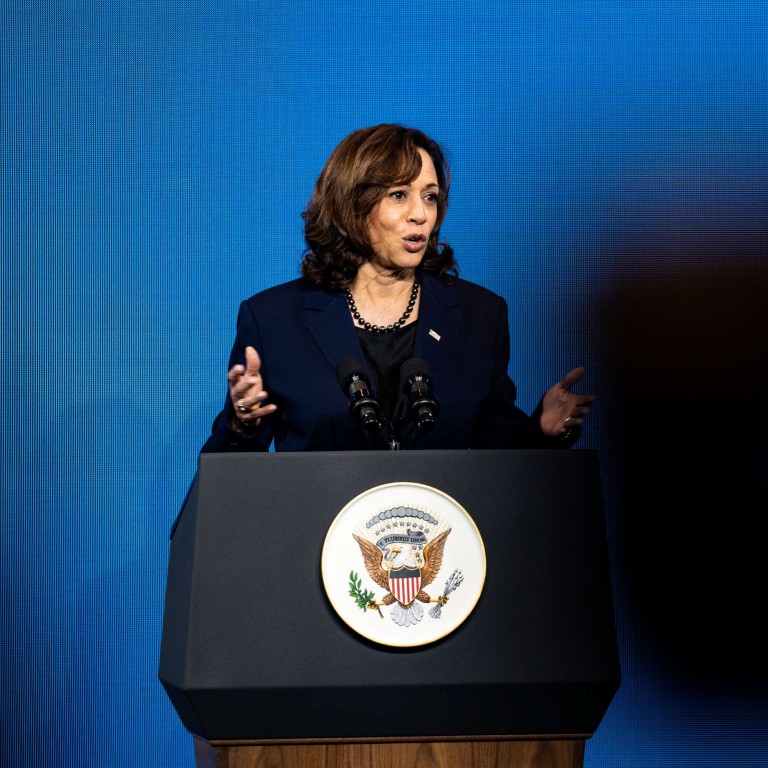
As US and China vie to win over Asia-Pacific, France warns of need for ‘single global order’
- US Vice-President Kamala Harris and Chinese President Xi Jinping reiterate Asia-Pacific commitments as leaders gather for the Apec summit
- US-China power struggle poses ‘a big challenge’, French President Emmanuel Macron says, as he warns against having to pick sides
Biden eyes boosting US-Asean ties in first post-pandemic ‘summit season’
“Our message is clear. The United States has an enduring economic commitment to the Indo-Pacific; one that is measured not in years but in decades and generations,” she told business leaders at the Asia-Pacific Economic Cooperation (Apec) CEO forum in Bangkok. “There is no better economic partner for this region than the United States.”
Under the Biden administration, partnerships in the Indo-Pacific had strengthened, with an “unprecedented expansion of ties” between the US and the Association of Southeast Asian Nations, Harris said.
Washington, she went on, would continue to work to increase foreign direct investment and increase the free flow of capital and trade with the region.
Harris also rallied for greater support from businesses, stressing that the US would strengthen economic rules and norms while rejecting market distortions and unfair competitive advantages.
“The United States is here to stay,” she assured the region, noting that growing economic ties and partnering private firms were a “top priority” for her country.
“America is a strong partner to the economies and the companies of this region because America is and will remain a major engine of global growth,” Harris said.
In much the same vein, Chinese President Xi Jinping a day earlier urged greater economic integration and cooperation among countries in the Asia-Pacific.
Asia-Pacific should not be ‘arena for big power contest’: Xi Jinping says
The region was “no one’s backyard” and should not become “an arena for big power contest”, Xi said in a written keynote speech to the Apec CEO forum on Thursday, as he called on countries to reject protectionism and a cold war mentality.
The Chinese leader again drove across similar points on Friday.
In an address to leaders of the Apec inter-governmental forum, Xi called for greater multilateral solidarity and cooperation to maintain the stability that continues to benefit nations in the region.
“Over the past few decades, economic cooperation in the Asia-Pacific has developed vigorously and created the ‘Asia-Pacific miracle’ which attracted worldwide attention,” Xi said.
“Now, as the world is once again standing at the crossroads of history, the Asia-Pacific is even more important and plays an even more prominent role.”
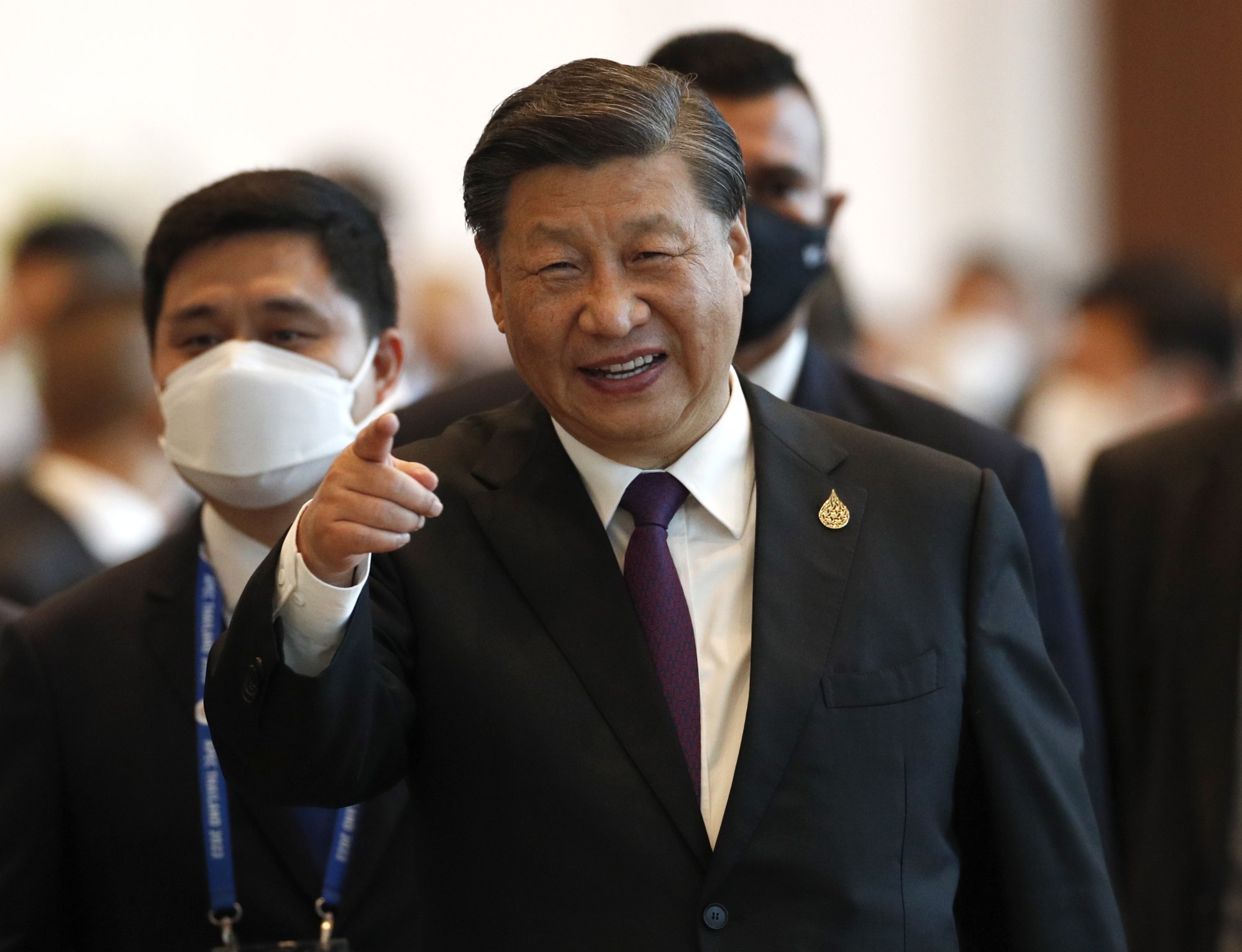
China has also sought to draw regional countries over to its side by boosting trade and economic cooperation.
Xi has increased his engagement with regional leaders over the past week, holding talks with Japanese Prime Minister Fumio Kishida, South Korean President Yoon Suk-yeol and Australian Prime Minister Anthony Albanese.
He also met New Zealand’s Jacinda Ardern and Brunei Sultan Hassanal Bolkiah separately on Friday, and called for greater collaboration between nations.
This comes as US and China continue to wrestle for influence in the Asia-Pacific region, considered by Washington as central to what it calls its Indo-Pacific strategy – designed to counter Beijing’s growing military assertiveness.
Countries in the region have long been worried about being forced to choose sides.
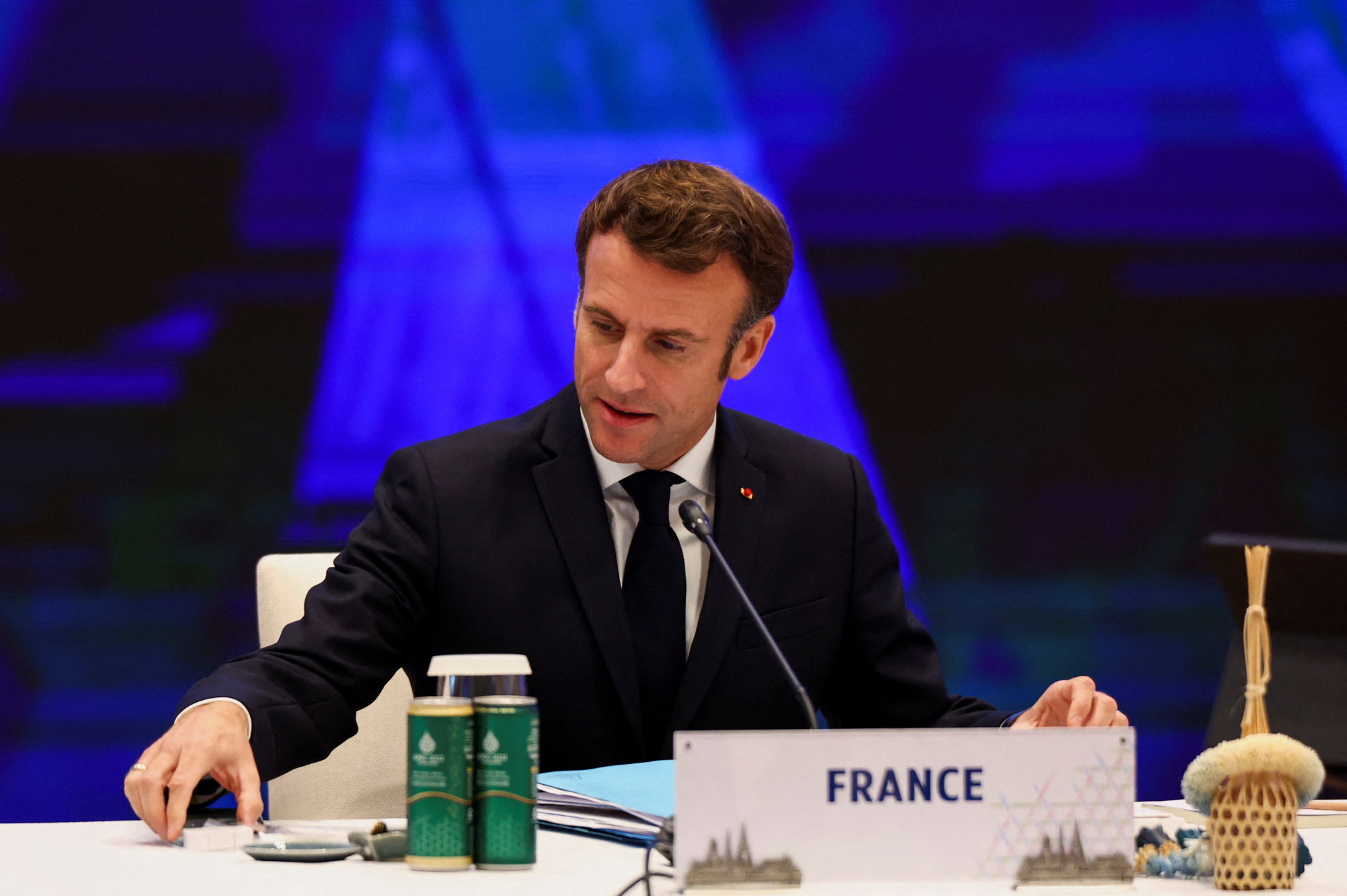
Stressing the need for a “single global order”, Macron said intensifying confrontation between the US and China had forced some countries to pick a side.
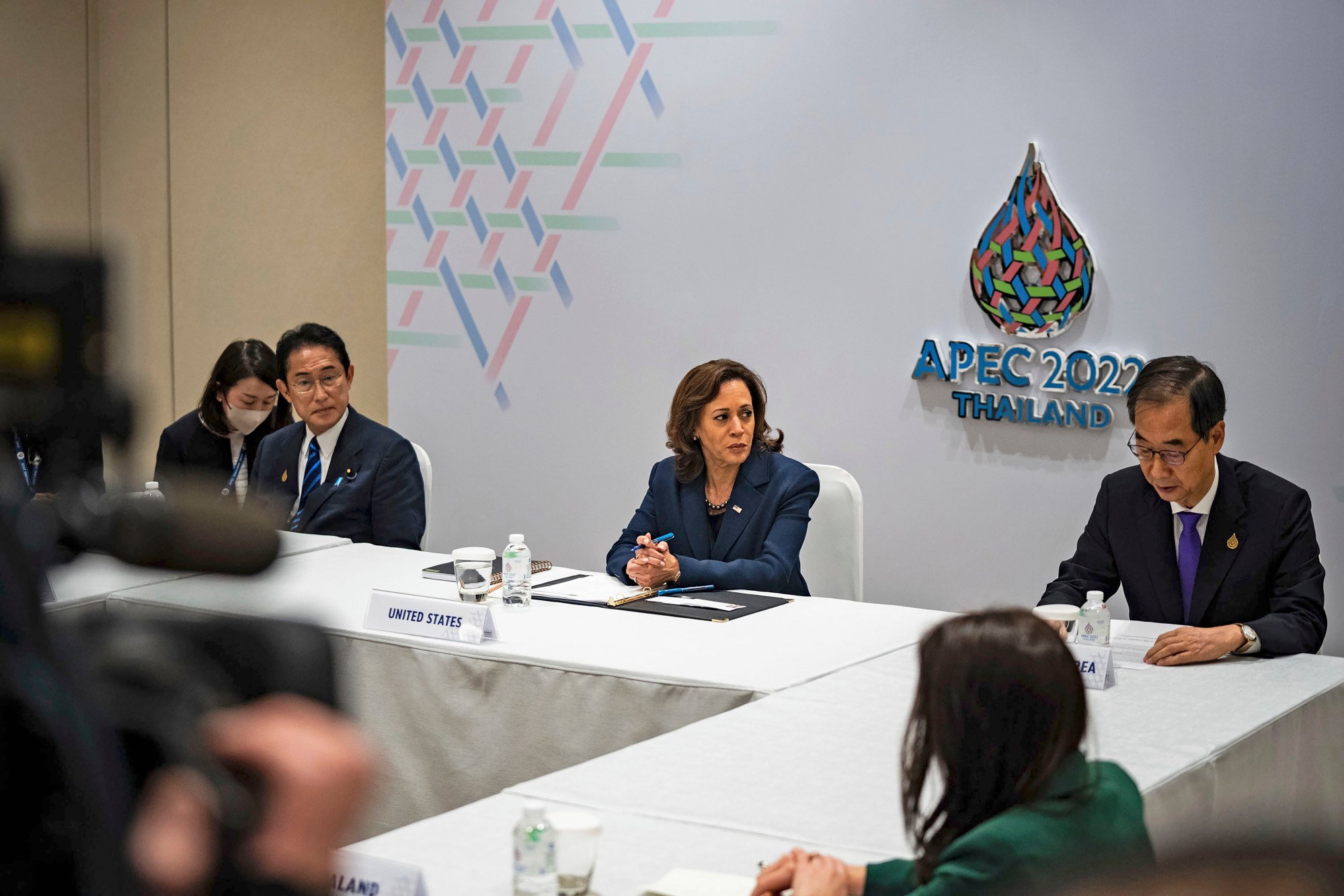
The White House said after the meeting that the leaders agreed the missile launch was a “brazen violation” of multiple UN Security Council resolutions, and warned North Korea that a nuclear test would be met with a “strong and resolute response” from the international community.
They also called on Pyongyang to “abandon needless provocation and to return to serious and sustained diplomacy”.
South Korean Prime Minister Han Duck-soo said the North’s actions were illegal and would “never be tolerated”.
Japanese officials said that the missile, which landed just 200km (124 miles) off Japan, was capable of reaching the US mainland.
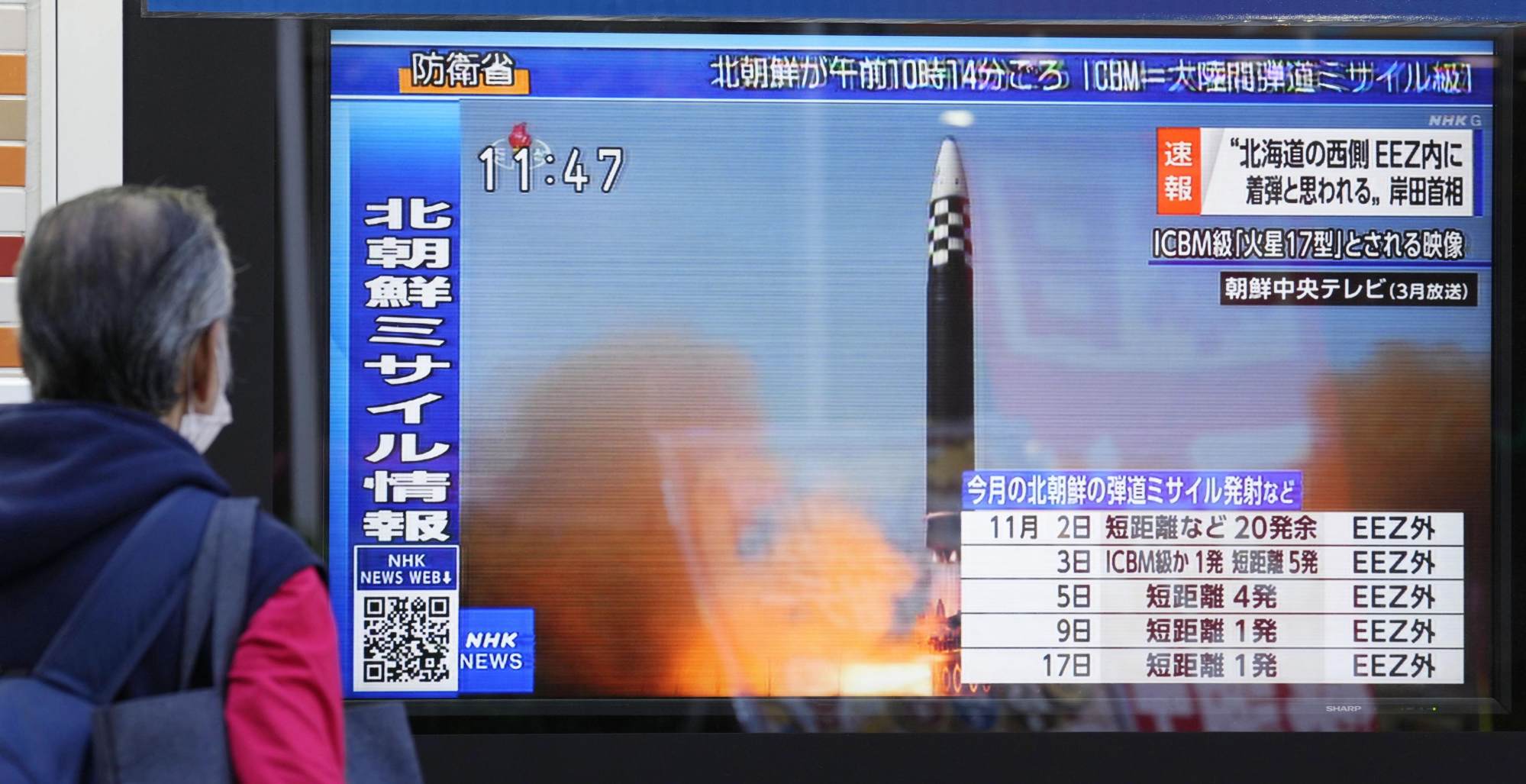
“They are reckless actions,” Australian Prime Minister Albanese said.
“We stand with the world, and indeed with our allies, in opposing and condemning this action in the strongest possible terms … And we stand ready to be part of a global response to this,” he added.
Countries including the US and South Korea have called on China – North Korea’s only major ally – to play a more active and constructive role in curbing the nuclear threat posed by Pyongyang.


